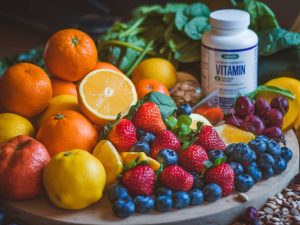Breaking down the benefits of omega-3 fatty acids

Breaking down the benefits of omega-3 fatty acids
What Are Omega-3 Fatty Acids?
Omega-3 fatty acids have become the talk of the town in the health and wellness community—but what exactly are they? Simply put, omega-3 fatty acids are essential fats that our bodies can’t produce on their own. That’s right, they’re called “essential” because we need to obtain them through our diet.
There are three main types of omega-3s: ALA (alpha-linolenic acid), EPA (eicosapentaenoic acid), and DHA (docosahexaenoic acid). ALA is predominantly found in plant-based sources like flaxseed and walnuts, while EPA and DHA come from fatty fish like salmon and mackerel. But why all the fuss about these tiny molecules? Let’s dive in.
The Heart-Health Connection
Looking to keep your heart in tip-top shape? Omega-3 fatty acids might be your new best friend. Research has shown that they can help reduce several risk factors for heart disease. Studies suggest that omega-3s help lower triglyceride levels, increase “good” HDL cholesterol, and reduce blood pressure in people with hypertension.
Additionally, omega-3 fatty acids may play a role in keeping your arteries clearer and less prone to damage. They help decrease inflammation, which is a major contributor to heart disease. It’s like giving your cardiovascular system a little TLC—without the hefty medical bills.
Boosting Brain Power
If you’ve ever heard that fish is « brain food, » omega-3s are the reason why. DHA, one of the primary omega-3s, is a key structural component of your brain. It’s crucial for cognitive function and neural communication. In fact, some studies have suggested that omega-3 supplementation may improve memory and even reduce the risk of neurodegenerative diseases like Alzheimer’s.
Feeling mentally foggy lately? It might be time to incorporate more omega-3-rich foods into your diet. Walnuts on your salad, anyone?
Supporting Joint Health
Ever feel like your joints have aged a couple of decades overnight? If so, omega-3s might be just what you need. These healthy fats have been shown to reduce symptoms in people with rheumatoid arthritis. Their anti-inflammatory properties can help decrease stiffness and improve mobility, making them a natural ally for joint health.
Whether you’re pounding the pavement during a morning jog or just trying to stay active, omega-3s can keep those creaky joints in check.
Improving Skin and Hair
Want glowing skin and healthy locks? Omega-3 fatty acids may have a role to play here, too. They help keep your skin hydrated, reduce redness and irritation, and may even slow down the aging process. Who doesn’t want that?
As for your hair, omega-3s can support hair follicle health, helping to promote strong and shiny strands. Add these fats to your diet and give your beauty products a well-deserved break.
Why Omega-3s Are Essential for Athletes
If you’re into fitness and sports, omega-3s deserve a place in your nutrition strategy. These fatty acids have been linked to improved endurance and reduced muscle soreness after workouts. By reducing inflammation and supporting joint health, omega-3s can help you recover faster and perform better.
So whether you’re a weekend warrior or a seasoned athlete, omega-3s can be your secret weapon for staying ahead of the game.
How to Incorporate Omega-3s Into Your Diet
The good news is that adding omega-3s to your diet doesn’t have to be daunting. Here are some simple and delicious ways to start:
- Fatty Fish: Salmon, mackerel, sardines, and trout are superstar sources of EPA and DHA.
- Seeds and Nuts: Flaxseeds, chia seeds, and walnuts are rich in ALA. Sprinkle them on your oatmeal or yogurt for a health boost.
- Omega-3-Enriched Foods: Look for eggs, milk, or plant-based beverages fortified with omega-3s.
- Supplements: If dietary sources are limited, fish oil or algae-based supplements can be a convenient option. Just make sure to consult your doctor before starting any supplement regimen.
Pro tip: Try incorporating a « fish night » into your weekly dinner plans. Grilled salmon with a side of roasted veggies? Yes, please!
How Much Omega-3 Do You Need?
So, how much omega-3 should you aim for? Recommendations vary, but most guidelines suggest adults should consume at least 250–500 mg of combined EPA and DHA per day. Pregnant or breastfeeding women may require higher amounts to support the baby’s brain development.
Not sure if you’re getting enough? A chat with a healthcare professional can clarify your specific needs based on your age, lifestyle, and health goals.
Common Myths About Omega-3s
Let’s bust some myths about omega-3s that might be holding you back:
- « You can only get them from fish »: False! Plant-based sources like flaxseeds and chia seeds are packed with omega-3s, and algae-based supplements are an excellent vegan option for DHA.
- « More is always better »: Not necessarily. While omega-3s are beneficial, consuming extremely high amounts can interfere with blood clotting and immune function.
- « You don’t need them if you’re healthy »: Think again! Omega-3s support overall health, not just for people with specific health conditions. Everyone can benefit from these essential fats.
Final Thoughts
Omega-3 fatty acids are a small but mighty part of a healthy lifestyle. Whether you’re looking to improve heart health, sharpen your brain, or simply feel your best, these essential fats have something to offer for everyone. So why not start today? Add a handful of walnuts to your snack routine, try that new salmon recipe you’ve been eyeing, or explore the world of omega-3 supplements. Your body—and mind—will thank you!






